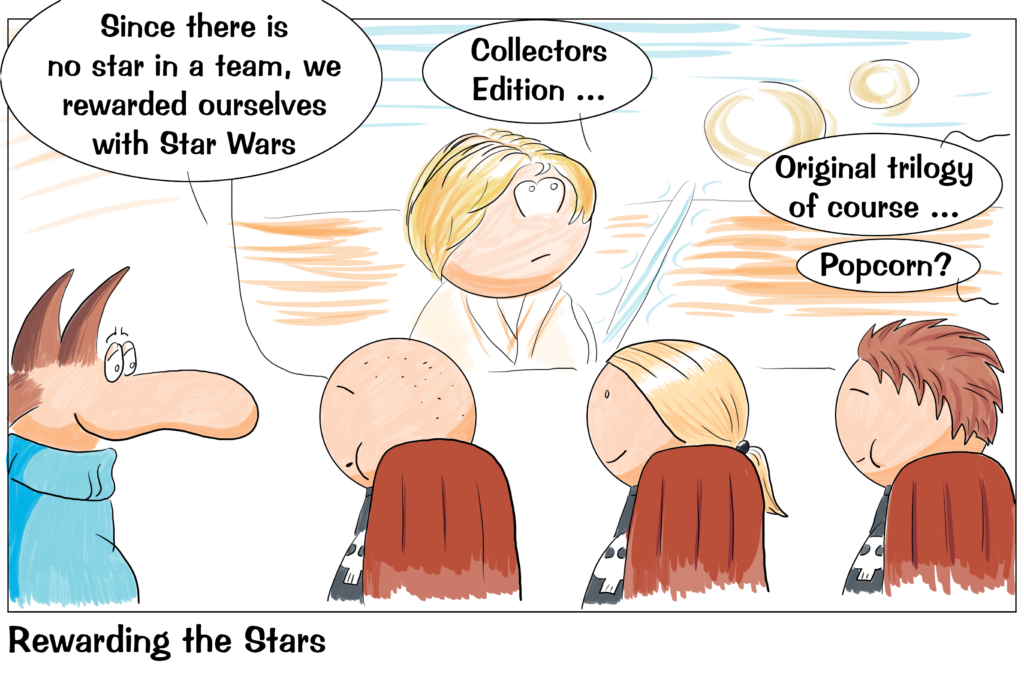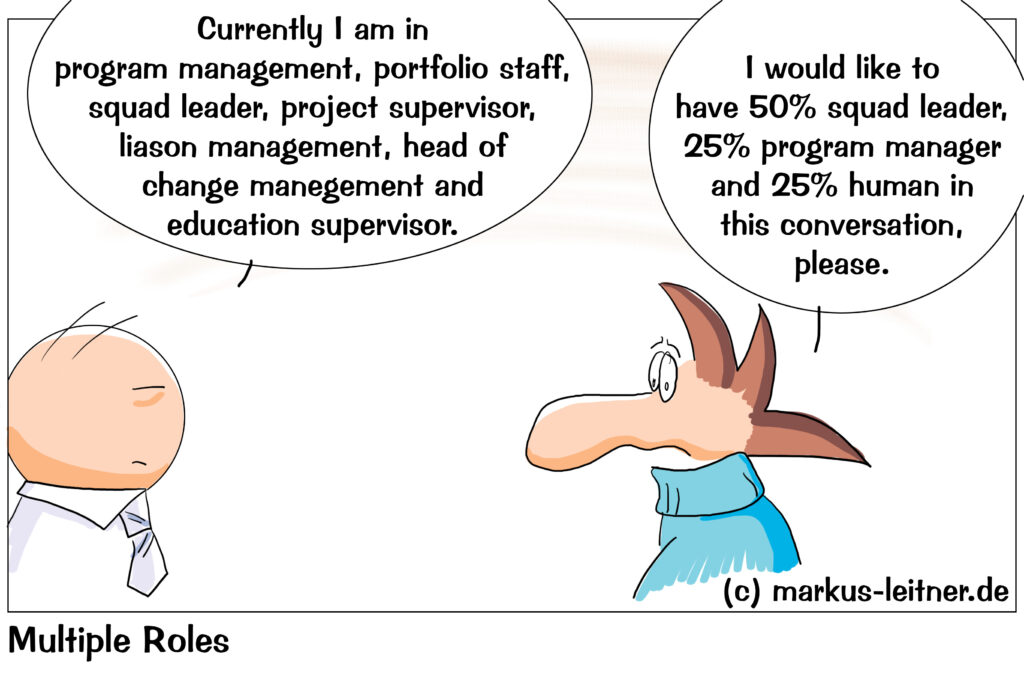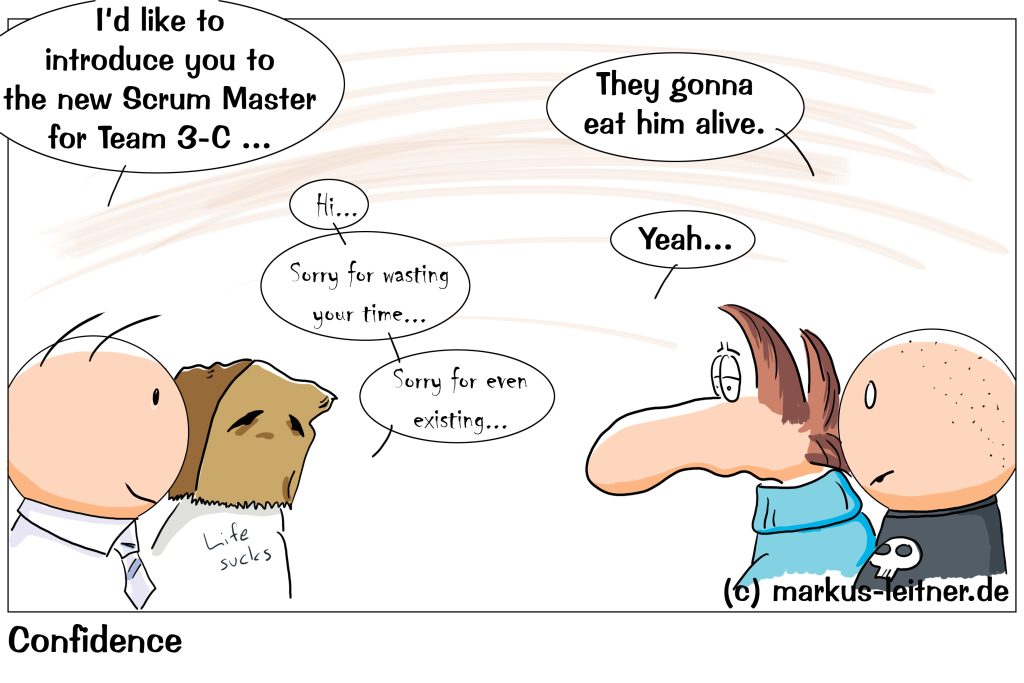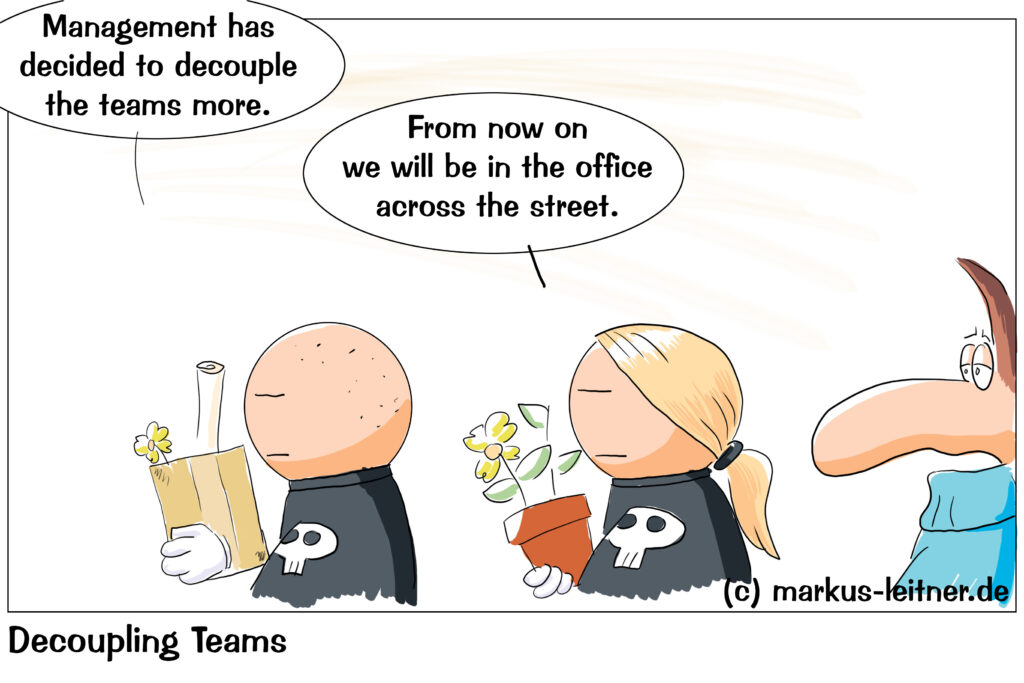
We have been working for years to view the team as a unit and say goodbye to individual roles. However, there are two types of colleagues standing in our way, and that (in most cases) without wanting to.
We have learned and teached since ages, not to focus on the individual, not to let a singe person stand out too much, but to focus on the team as a whole. If something good happens, it is a team effort. If something not so good happens, it is the duty of the whole team, to get things right. And first of all, equal rules and rights for all.
Do not get me wrong. That is exactly right. Every now and then, however, we come across people, where things do not work out that way. Where things are a little bit different. Those are the superstars. I am not talking about the self-proclaimed stars, who take all possible liberties, act like a diva and deliver next to nothing or not much more than everyone else. We may have to have a serious one-on-one conversation with those to make sure, that team rules apply equally to everyone, because this behavior would destroy the team.
Do not be afraid to have an unpleasant conversation. It is not your task, to always be the nice colleague everyone likes. If we have a rotten egg in our nest, breaking our team structure, we step in. We have to step in. And if that means, that we have to make something clear to someone, we do not shy away from serious conversations. We would not help our teams, if we would not clarify the situation. And we also accept the risk, that this particular colleague my feel offended. We have to.
Of course, we conduct such a conversation objectively and with the necessary calm. We explain that it is difficult for a team if the same rules do not apply to everyone. Maybe we are lucky, and our colleague just has not noticed that he has taken more and more liberties over time, is insightful, and shows real effort afterwards. Our team will notice this effort and even support it. In all likelihood everything will dissolve, and everything will be fine.
If the colleague does not understand, we have to make it clear to him that we will not allow a single person to destroy a team structure. In the worst case, this means that someone has to look for a new team if the starry airs don’t stop at some point.
But I do not want to talk about self-proclaimed stars any longer. I want to talk about the real ones, because dealing with them is a lot more difficult.
By »superstars« I mean people, who just work differently than others, who need a lot more freedom in order to function at all, but can then solve the problems unsolvable to others, who build the super-hot shit, then play Tetris and drink coffee for half a day and then do again something, that knocks everyone off their feet.
Sorry for the term »function«. I do not like that expression if used in context with humans, but I cannot think of another term at the moment. I think, you get what I mean.
Back to our topic.
With those colleagues we reach a dilemma: on the one hand there should be no star in a team. The team is a homogenous unit, and everything is accomplished by the team, not by a single person. Naturally, that implies that all rules apply equally to everyone. But if we start to keep those stars on the short leash, they will start to wither. We will have kept the calm in our team, but we will also have given away a lot of potential.
The other end of our options would be to give our superstar complete fooling freedom, which would only arouse displeasure of the rest of the team (and that is the most friendly and reserved phrase here). We would destroy the whole team. In other words: do not even think about it – it is a stupid idea.
The art and our hope are finding the right balance. We need everyone’s participation. We know, that the superstar colleagues just work a little differently and need a little freedom to build the super hot shit, and of course we want the super hot shit.
Luckily the other colleagues in our teams know that too. Usually teams have a very keen sense for someone needing a little more air to breathe, and they are willing to give that, if there is something coming back. I have never come across a team, where that was not the case. If you have a team, that is not willing to give someone a little more freedom in exchange for something other, there is another problem beneath that. Trust me.
Usually it is more like that:
We know, that our colleague is a bit different, but if he does not overdo it (that is the important part) and still builds the hot shit, we turn a few eyes and can live with it. We benefit from the fact, that he brings something special to the table. As long as it is give and take, it is OK for us.
Of course, that only works if the star sees that in the same way, and that is our job. Maybe we are lucky, and things have turned out without anyone noticing and without us doing anything. Star and rest of the team came to a silent agreement. There is some bending of the rules, but nothing to extreme, accepted by everyone, and we can all live with it, things have turned out nicely and are running smoothly.
If that is the case, I would advise you to do exactly nothing. Just be happy. It seems to work, so there is no need to touch it.
If our colleagues have not found that blissful balance, it is our job to help them, and our first path leads us to the star. Without their cooperation it will not work.
We want to know, whether he is even aware, that he is taking a lot of liberties. On the other hand, we signal, that we are aware, that he simply works differently, and that things have to be different for them. We wan to work with him and not just put him under pressure.
We also make that clear: Your teammates want to see that you do not see yourself as the star. They want to be taken seriously.
Super important. Without that we will not achieve anything.
We want our star to realize, that he works differently, but that he won’t achieve anything without the support of the others. We want him to realize, how dangerous it is for someone to step out of the line completely, that this might destroy a whole team.
That conversation is not easy and requires a lot of tact. We want to set boundaries without limiting, and we want them to help us with that. We can only do this, if we show, that we understand the situation and that we understand both sides.
Conversation with the entire team is not easy either. In these situations I prefer the individual four-eyes-conversation over the whole-team-communication. The special role of an individual is not a retro issue for me. As soon as we talk about it in the bigger group, we will speak differently and very likely not get a reasonable result. We simply cannot talk in large groups about the fact, that there a special unwritten rules und special regulations for individual people.
But if we talk privately about what an individual is willing to accept in another’s »quirks«, we will speak openly about what we simply will not do in a large group. Our colleague will tell us something in a one-on-one conversation: »I can live with the fact that he does this, as long as he does that …«
If we can then answer, that that is pretty much what our colleagues said, then we have come to an agreement. We reached an agreement in the group without speaking in the group.
Exactly what I talked about with every single teammate is what I then have to talk about with the star. He will like it, and he will accept it. He himself is aware, that he is creating a difficult situation, if we were good in the previous conversations. And he will at least make an effort afterwards, and that is what the colleagues want to see first and foremost.
That sounds like shadow diplomacy to you with absolute certainty, and it is, but it is a path that works. And that is what counts in the end. We did not take advantage of anyone. We have not ignored anyone. We brought someone back into the team who – probably without even knowing it – was about to leave the team behind.
If we have to stick to unconventional methods to achieve that, we do that.
Once again, because it is that important: There are topics, that do not sit well in a retrospective. If we would try to solve that issue in that greater group, we would most probably fail, because no one would want to talk about that issue in a larger group. It is an unpleasant topic, and it is a difficult topic. Those topics are much easier to deal with in eye-to-eye conversations.
Last things last: Sometimes there is the model to lock up all superstars of the company in a single think-tank, meaning to build a special team and use the combined brainpower. Please do not expect that to be that simple. Most of those experiments fail.
If we let very creative minds play with each other without rules, they tend to jump from one good idea to the next. However, we want these colleagues to deal a little more closely with individual ideas and to select the most exciting ideas at some point. For such a think tank, you also need a very experienced methodologist who can tame the chaos without restricting the creativity of these colleagues.
And a think tank needs a clearly formulated and communicated task. Everyone needs to know what they are working towards.
Think tanks are, however, a rather complex topic in themselves, and we deal with that in another article.
Core: Self-proclaimed superstars, who only bend team rules in their favor, need limits and, in case of doubt, a clear message. Real superstars – people who can do special things but need a special environment to do so – need the voluntary support of team members. Our job is to find the right balance with everyone’s support.
If you need any assistance or want to know more, just speak to me.











